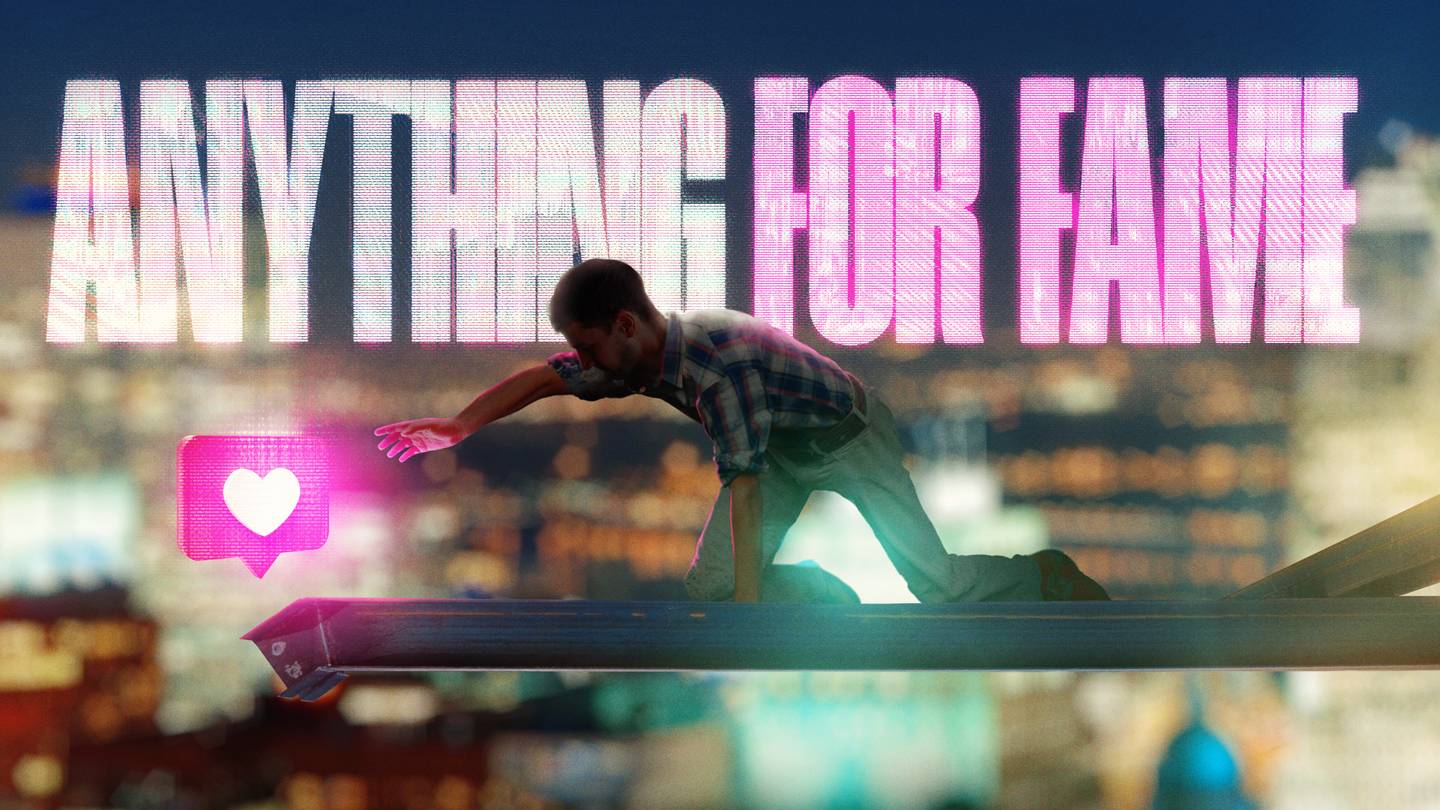Anything for Fame Film – Streaming on Paramount+ and the NFB on Wednesday, November 8th.
Link to stream: NFB
Full Interview
Whether we like it or not, “influencer culture” is here to stay. However, with the Internet being more saturated with content every day, aspiring creators are willing to push the boundaries further and further. How much further can they go?
I had the pleasure of chatting with Tyler Funk, the director of the 2023 documentary Anything for Fame. We had a fascinating conversation about influencer culture, the delicate balance between being a “character” online vs. crying out for help, and why allowing viewers to come to their own conclusions is essential. In the end, Anything for Fame does not attempt to tell you how to feel about influencers and the culture that society has created. Instead, we see these influencers as human beings and are taken into their world to explore the lengths they will go for fame.
Trailer
Meet the Stars
Ava Louiise
Instagram: @avalouiise
TikTok: @realavalouiise
Jumanne
Instagram: @jumannestruggled
TikTok: @jumanneee
YouTube: @JumanneSClary
Jake Hillhouse
Instagram: @jakehillhouse
YouTube: @GoodTimeFilms
Background on the Film and Past Experience with Social Media
Adam Manery
This film was fascinating to me. I spent six years as a high school teacher, and this phenomenon of “doing anything for fame” is something that I experienced with my students. Before we dive too much into the documentary, how would you describe what this film is really about?
Tyler Funk
It’s a character documentary that profiles young creators who are willing to do anything for fame. In that sense, it’s probably more of a film for adults – I don’t think we have a PG rating. But it’s taking a look at what is actually going on out there. What the landscape is and what happens when you put it all on the line for fame.
It was so interesting how you brought these different characters together who are chasing a similar objective but are on very different paths. Your path also connects to the world of social media. Not as an influencer, but you were behind the “White Ninja” series on Vine. Did that experience in a different realm of social media influence you to make this documentary?
It really did. I had this series, “White Ninja”, based on a hilarious webcomic developed by these guys in Saskatoon, and I wanted to make it into a Vine series. I worked with them, and we ended up writing 200 episodes. Through that, I got a sense of what it was like to be in that landscape and how incredibly competitive it is, how much content you need to produce, and what a challenge it is to monetize. We had a ton of success; the show got optioned, the UPA represented us, and we pitched all the major networks in Hollywood, which was a real joy. But all that happened the week Vine shut down, so we went from being a hot property to “Oh, you’re a Viner… sorry, I’m busy”. It was fascinating seeing how fickle everything was and how this popularity contest not only exists online but also in traditional Hollywood.
It’s so true. With this form of media, you can go “viral”, and you can be popular, but that doesn’t mean that it’s a sustainable career, and I think a lot of people don’t understand the intricacies there.
Definitely, and with “White Ninja” it was an animated series, so it’s not as though we were doing the stupid stuff. Our stupid characters were doing the stupid things. It’s so different if you’re the lead character and you’re taking that on, trying to do crazy stuff for attention. And it’s you and your face behind it, so you can’t leave it easily, whereas we were just making a show for entertainment. Social media gets blurry because you are the entertainment, and you can get trapped within a character, as some of the people in our film have been.
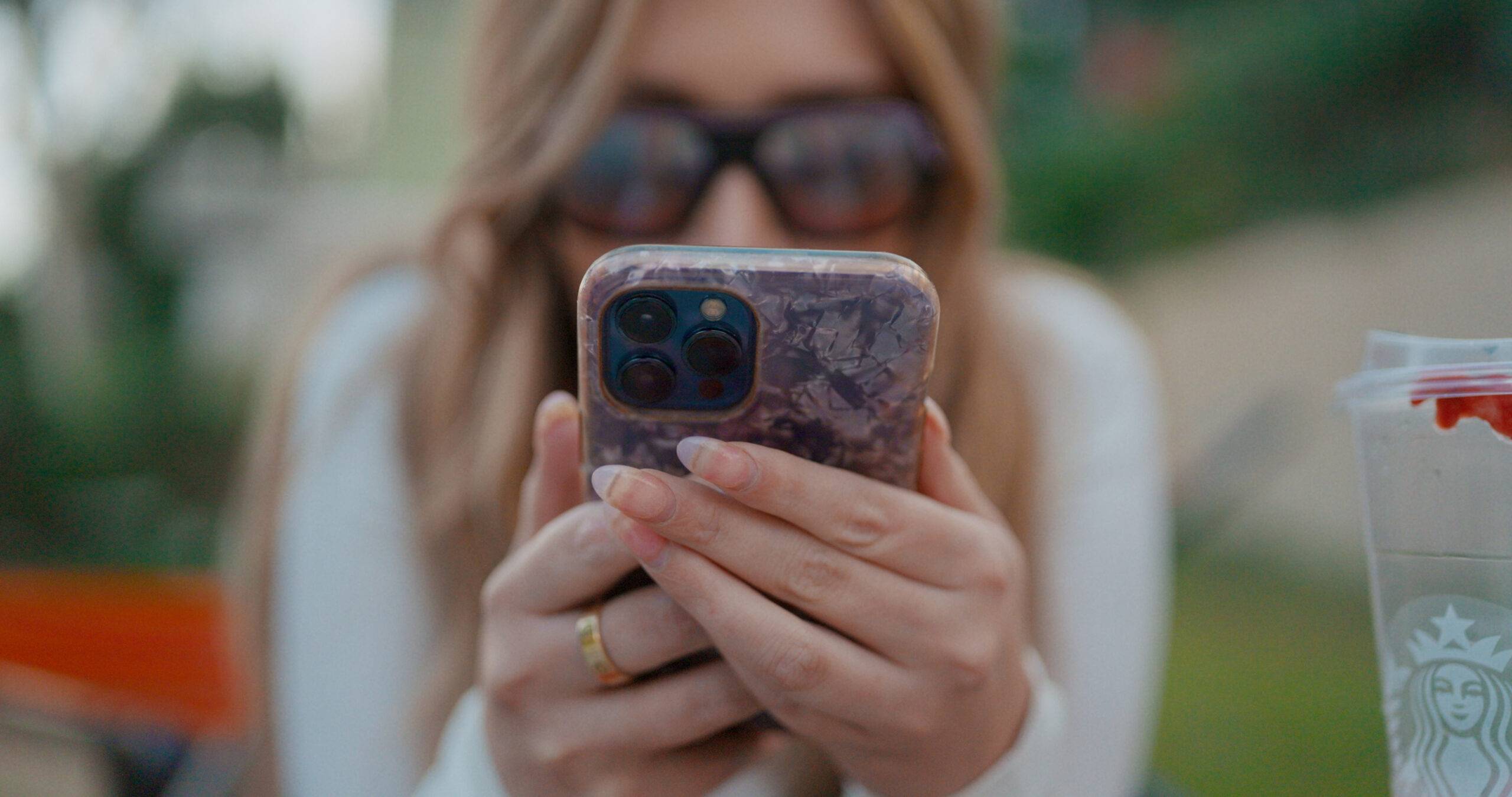
Selecting the Characters and Working with the NFB
100%. Let’s talk about some of these “characters”. You focused on three in the film: Ava, Jake, and Jumanne. I imagine you cast a wider net and then concentrated on a select few. What was that process like?
We started by sending out emails to over 250 influencers, and there were long rounds of back-and-forth just trying to get someone on a call and to even get to that point, we spent hours and hours watching TikToks, Reels, and YouTube videos. We had to constantly change our profiles because the algorithm starts showing you only one type of content creator, and we wanted this film, like the Internet, to show all the different ways people are pushing the limit to get fame. Interestingly enough, we had Jake (@jakehillhouse) early on, and we had some great chats, but then he had a falling out with content creation and wasn’t really available, so we were unsure if we would have him for the film. Jumanne (@jumannestruggled) was a last-minute add because someone else cancelled, and we had some time. We were on Reddit, and we saw this guy exploding on there, so we reached out to see if he wanted to be in our film. Ava (@avalouiise) was also not in the film originally, so basically, we added all three of them afterward.
I assumed those characters were core to the project from the beginning, so that’s interesting. Also, it’s so rare these days that you have the flexibility to make these changes later in the planning stages of a project. How were you able to do that?
The National Film Board is such a fantastic institution, and it’s one of the last ones left that gives artists freedom and lets them lead in that regard. When we pitch other projects, people want you to have your entire doc scripted and complete when you take it to them. The NFB was amazing, and the Telus Fund was as well, where they trusted us to tell the story and gave us 70 days to shoot. Because of that, we could add to the film and chase stories that were interesting as we were doing it. That’s why we ended up with such unique characters because if we had set out with the first people we interviewed, we would not have gotten people at the right emotional arcs of what they were going through.
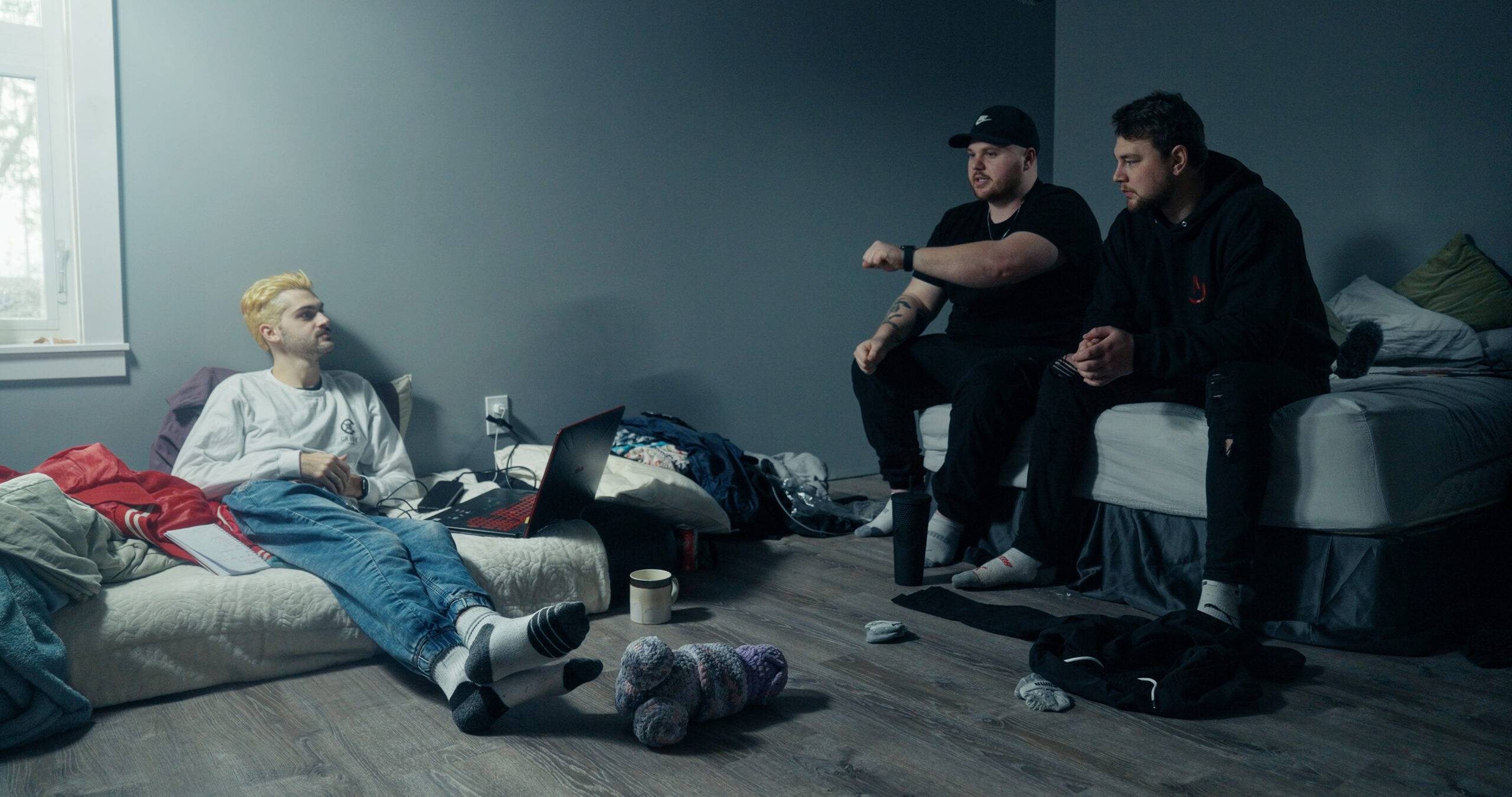
Providing a Holistic View of Influencers and Allowing Viewers to Form Judgements
You’re right. The characters you ended up with worked so well. They are all so different as well. Jumanne, in particular, had yet to find the success that Ava has and that Jake has to a lesser extent. Did you always plan on at least including someone who is trying but maybe not succeeding to the same degree?
The fascinating thing with the Internet is you never really know where everyone’s going to go. We didn’t want the film to say, “Hey, don’t be a content creator” or “Hey, you should be a content creator”. One of the mistakes of past films on influencers, like in the Netflix documentary The American Meme, is that they were all high-level influencers. It’s like if you’re trying to present a realistic documentary about basketball but only showed Lebron James. We wanted to show what people are actually going through, what the different levels of success are, and what it means to put everything into it and fail, what it’s like to damage relationships, lose your job, go to jail. When we started filming with Jake and Ava, they had already had some significant viral moments, whereas Jumanne was on the comeup.
And you provided a more holistic, comprehensive picture as a result of that approach. What I also loved about the documentary is how you seemed to present everyone simply as they are. It didn’t feel like you went in with a narrow concept of how you wanted to portray influencers. Was this always the case with your approach, or did you start with a particular thesis?
As a viewer, I don’t appreciate documentaries where the filmmaker is a huge part of it, so we decided early on that I’m not going to be Michael Moore. He makes some amazing films, but I’m not going to be walking around, giving my opinion. I’m not that personality, and I enjoy documentaries where we spend more time with the characters instead of the filmmaker. With this film, people can make their own judgements. We have had a lot of different reactions. People love Ava; people hate Ava. People love Jumanne; people hate Jumanne. Everyone sees different sides to the creators, and I think that speaks to us doing a good job of showing an accurate perspective of who they are. We’re showing different elements of their life and not just who they are online. We get an understanding of why they’re doing what they’re doing. No one needs me to tell them the answer. They can watch the film and arrive at their own opinion. Many films out there feel like Wikipedia articles where you get the thesis, and then you keep watching, but you already know the perspective. We wanted the film to be an entertaining experience for viewers and just let them follow the characters’ journeys.
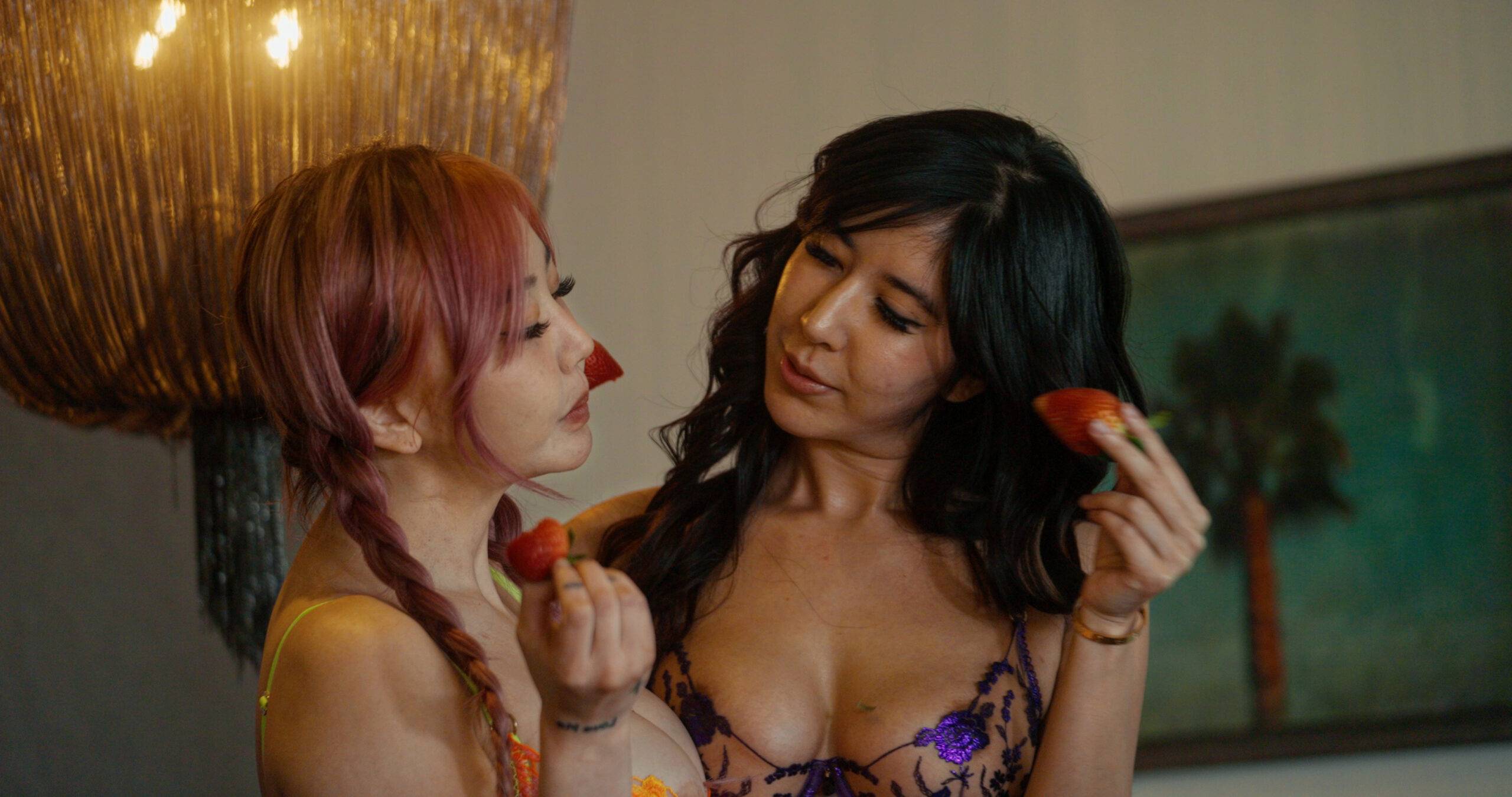
Playing the Game and the Role of Social Media
You mentioned a difference of opinion regarding these characters, perhaps Ava most notably. I found her quite fascinating. In the film, she said, “The [mainstream] media doesn’t care about being honest”, so why should she? She understood that what one presents online doesn’t need to be the entire “truth”. Was this an angle you always wanted to explore?
We wanted creators who were looking at social media as a game. We interviewed some creators who aren’t in the film who go viral almost by accident, or they could be dealing with certain inner demons that get viral attention. We weren’t interested in those stories because that’s a whole different conversation around mental health. We wanted creators who identify this insane, messed up game and how they will play it. It feeds into the larger conversation surrounding platforms and algorithms and all of that. We wanted creators who were aware of that and manipulating that and playing in that world.
Did the making of this documentary change your relationship with social media and these platforms, and the algorithms and everything involved in that world?
My take is that social media is a great tool for marketing. If you have a product to sell, it’s a fantastic tool. It’s a tool of our generation, and there’s never been such an amazing chance to sell and connect with others. However, it isn’t realistic to just put content out there and expect to monetize. There are so many enormous competitors in every space now. If it brings you joy or if it brings you community, that’s fantastic. If you’re funneling it to try and sell something, that’s great. But if you think you can make some stuff and get rich and quit your 9-to-5, that is insanely tough. Creators need to have a big game plan and a clear strategy, and even with all that, you’re still competing against giant media companies who are also creating content. It’s not the YouTube days of old where you just made some videos and found a following.
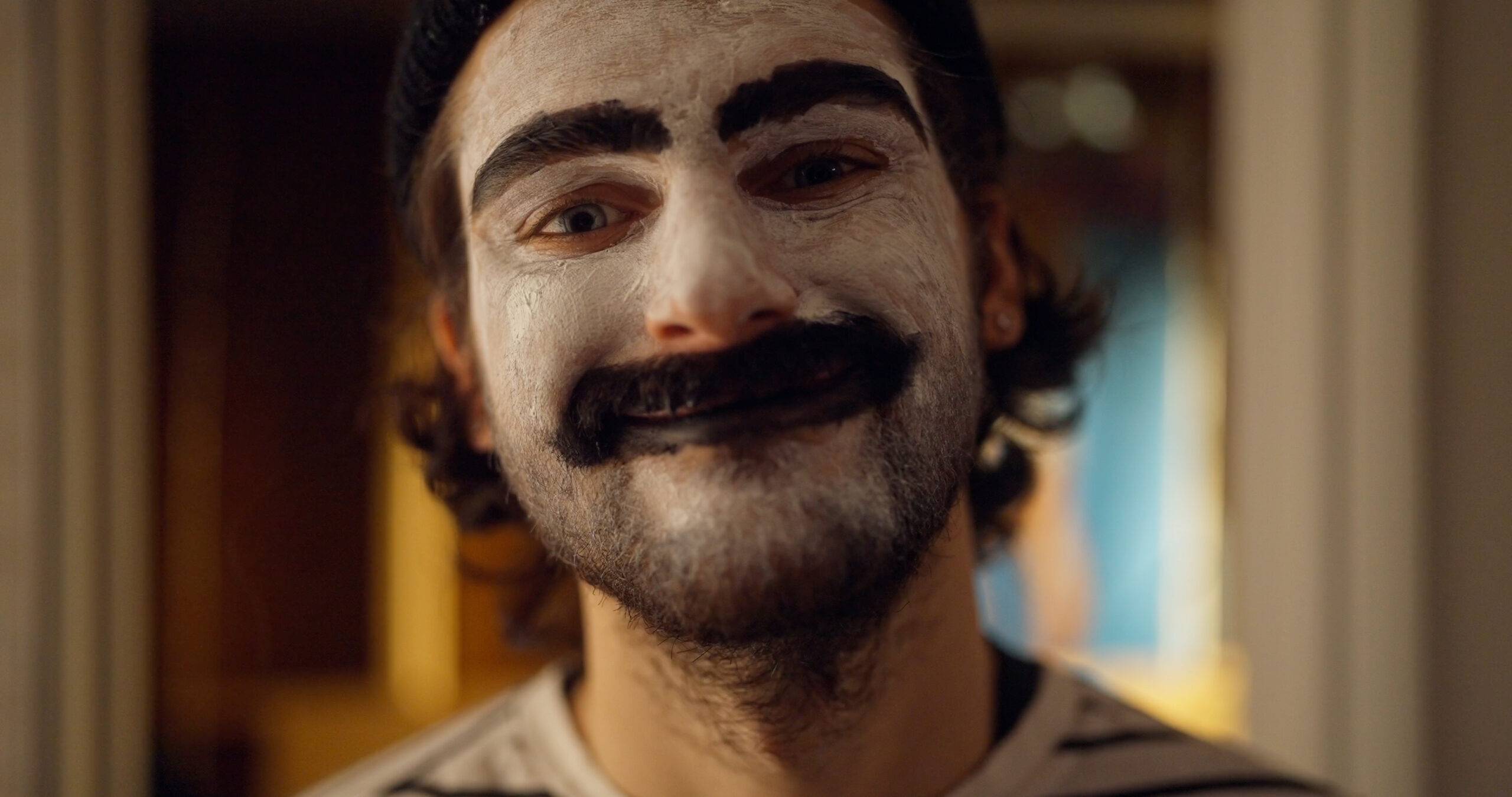
Connections to Traditional Filmmaking and Finding Empathy
More people are starting to understand that you can’t just strike gold overnight. In a sense, it’s similar to some other avenues, including traditional filmmaking. How do you view the similarities or differences between those two worlds?
There’s a lot in common. The one difference, though, in the film and television industry is that there are methods that protect us. Before releasing this film, we have lawyers go over it to ensure there are steps taken to protect us, to make sure we’re doing it the right way to avoid putting ourselves in a difficult position. In the social media world, as a content creator, you don’t have any of that. You don’t have the resources. You’re your own publicist, your own lawyer, your own executive producer, your own writer, and that’s a lot for any one human to manage. Also, if the goal is always to be more provocative, you’re going to cross the line eventually just by the definition of how long you do it.
You touched on that in the film with various lawsuits that have been levied, and you also dove into even darker material beyond the legal implications. You showed the reality that some individuals in this space may end up taking their own lives. Did this side of the story reveal itself as you learned more about the space, or was this something you always wanted to shine a light on?
I grew up in Banff with a small group of friends, and the plan since grade six was to move to Vancouver to make films. I always wanted to do it, and I had a few friends doing it with me, including Sebastian Mercado, who was an editor and producer on this film. We went to school together, and along with us was another friend, David, who was the entertainer in the group. He would often do outrageous things and the most ridiculous stunts, like Jake, in a way, with some of the big gestures. When we were at film school, he ended up taking his life while we were living together and at film school together. It took a lot of time for me to process, but it also led me to have a lot of empathy for the people that we might see as the class clowns. It allowed me to understand what might be going on behind them, the red flags that we missed because we thought he was entertaining but may have been cries for help that were always there. It also led to the development of this film, seeing such wild behaviour online and wondering what their motivation is if people aren’t making money or getting the views. For certain creators, I do think it’s more of a cry for help, saying, “I need attention, I need relevance, I need community behind me”. So, ultimately, I was always aware of that connection within the film.
That empathy is evident in this film. The characters are presented in a way in which you might not agree with everything they say or do, but you at least feel with them. Hopefully, a lot of people watch this film, and when they do, what do you want them to take away from it?
The big takeaway is around the idea of relevance and fame. It is understanding why we all have this desire and that it’s not a bad thing. We all want attention from those around us, but what are the ways we can find it in a healthy and sustainable manner? I really wish the best for all the creators in the film. They’re all friends that I still talk to, and a lot of them are still working through things. We’ve had a great run with the film; it has been out on Paramount+, and now, with the wide release through the NFB, we’re hoping to get more eyes on it. It has gone international this week on Paramount in France, Germany, Australia, and New Zealand, so hopefully, more people will get to see it and share their thoughts.
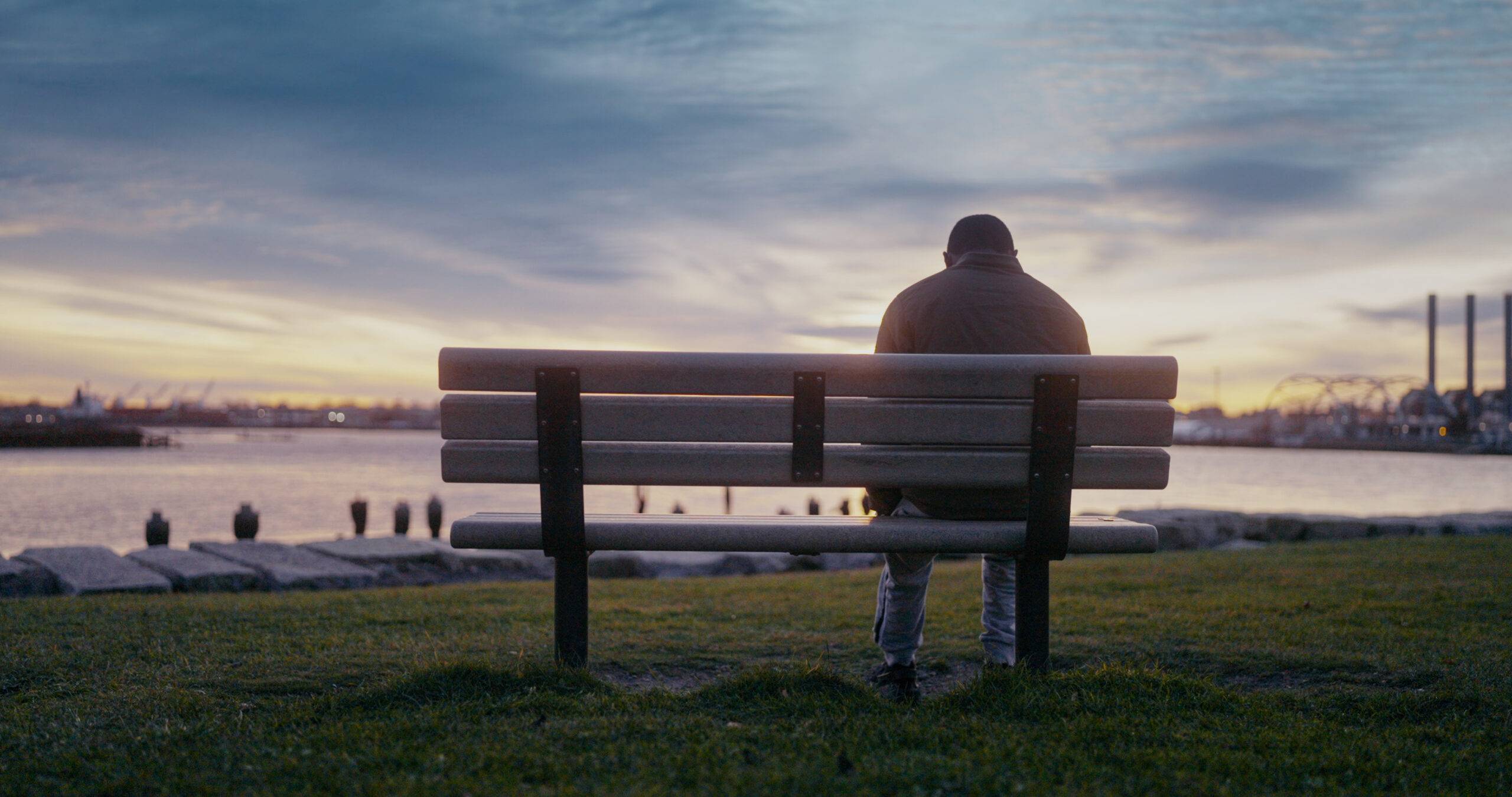
Check our more interviews with emerging and award-winning directors here.

